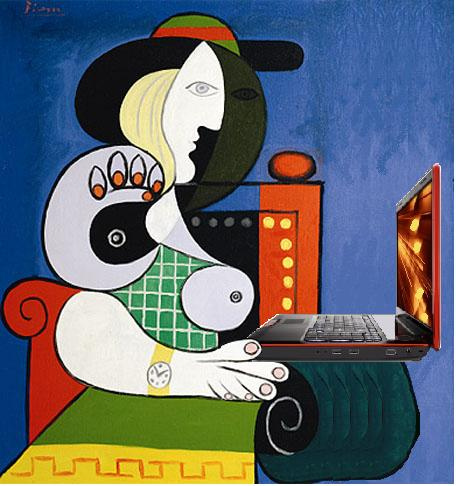In the last week these three posts really caught my eye, and I’ve been thinking about what each of them said. First was a post at Patheos on one of my favorite women in the Bible: Lydia.
Did you ever wonder to whom St. Paul wrote these inspiring words?
I am confident of this, that the one who began a good work among you will bring it to completion by the day of Jesus Christ. (Phil 1:6)
Let the same mind be in you that was in Christ Jesus. (Phil. 2:5)
Whatever gains I had, these I have come to regard as loss because of Christ. ( Phil. 3:7)
You may not have pictured a successful businesswoman, but Lydia led the group who first received the letter to Philippians.
In Lydia: With Briefcase and Laptop Kathy Coffey points out what many people don’t know–Lydia was the pastor of the church in Philppi. The first Christian church in Europe met in Lydia’s home and was led by her (Lydia was the first Christian convert in Europe). We all know I love Lydia because she clearly shows that women were not meant to be just wives and mothers. Lydia was a business women, head of her household, and a church leader. I’ve written about her here, here, and here.
The next article that caught my attention was from The Sexy Feminist: Why We Need Female Spiritual Leaders by Jennifer Armstrong.
The reason our group, the Manhattan-based Village Zendo, made these two tiny changes in our services years ago, of our own accord, was because we were founded by, and are still led by, Roshi Pat Enkyo O’Hara and Sensei Barbara Joshin O’Hara, both women. Of our top tier of four senior teachers, two are women. None of this is a coincidence; it’s exactly why female leadership is needed in any organization, because women see the ingrained inequalities and right them intuitively. The Matriarch’s Lineage was a Village Zendo creation, and took quite a bit of meticulous research to get correct — but our female leadership knew it was worth the effort. It’s not always men’s faults that they don’t see such slights as the fact that many chanted lineages are completely male, and that women have surely contributed to the building of many religions, whether or not their contributions were recorded as meticulously as men’s.
I had the same experience when I first joined The Christian Godde Project and read the first chapter of Matthew–Jesus’ genealogy–with the names of all the women named in the Bible along with the men. It was an eye-opening moment for me to see the names of the mothers along with the fathers in a biblical genealogy. I will soon be adding the women’s names in Jesus’ genealogy in Luke. History’s normal default is male, white and Western European, so Jennifer is right: we can’t solely blame the guys for overlooking women and minorities. After all for many of us that was “normal” and “objective” history and religion. But by encouraging women and minorities to be leaders and making it possible for them to be leaders, we then can hear their voices and experiences too. Our lives and our relationship with Godde will be the richer for it.
The last thing I read last night that has made think is 25 theologians to broaden your faith. Surprise, surprise: it wasn’t the names of the women on the list that caught my eye but these three:
Margaret Laurence was a Canadian novelist and short story writer. Raised in the United Church, she attended Lakefield (Ont.) United in her later years.
Try: The Stone Angel (1964)
Marilynne Robinson is a Pulitzer Prize-winning American novelist and essayist.
Try: Gilead (2004)
And of course:
C. S. Lewis was an Irish-born British writer, lay theologian and proponent of Christian apologetics, a branch of theology that aims to present a rational defence of the Christian faith.
Try: Mere Christianity (1952) or his children’s novel The Lion, the Witch and the Wardrobe (1950)
Novelists made the list! Maraget and Marilynne mainly write fiction. C. S. wrote both fiction and non-fiction theology. Novelists were included in a list of theologians! For the last five years I’ve been wondering how to fit my fiction with my non-fiction; fit my fiction and my theology. It was all wasted time! Writing fiction is part of my task as a theologian. It doesn’t have to be “fit in.” Madeline L’Engle said “Faith is best told in story.” (There’s another novelist I’d add to the list of theologians you should be reading).
I say: Theology is best told in story.
What have you been reading that’s made you think? Any recommendations on what I should read next? Let me know in the comments.

How exciting a discovery! I read Margaret Laurence in school, growing up in Canada, and her work is very powerful. And I have been moved by both Marilynne Robinson and C.S. Lewis. And think, Lewis wrote science fiction as well!